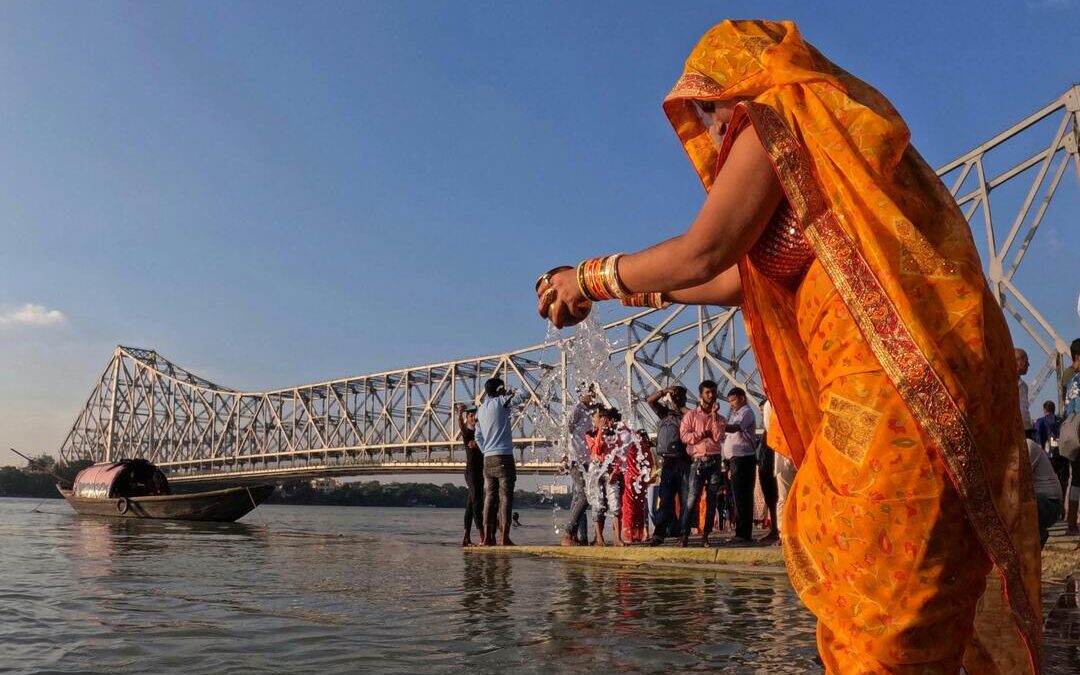India Approves $108M in Ganga Clean-up Projects, Pushes for River Conservation
India greenlights ₹900 crore worth of projects to clean Ganga, boost sewage treatment and river conservation efforts.
The National Mission for Clean Ganga has approved a series of significant river rejuvenation and pollution control projects worth over ₹900 crore ($108 million), including new sewage treatment infrastructure in Uttar Pradesh and Bihar.
The Ministry of Jal Shakti said the decisions were taken at the 61st Executive Committee meeting of the NMCG, chaired by Director-General Rajeev Kumar Mital, as part of a renewed push to restore the Ganga River and its tributaries.
Major Sewerage Projects in UP and Bihar
Among the key projects sanctioned is a ₹409.93 crore initiative to construct modern sewage treatment plants in Moradabad, Uttar Pradesh.
The plan aims to clean the Ramganga River, a major Ganga tributary, through two STPs with a combined capacity of 80 million liters per day and diverting five major drains.
Another ₹328.29 crore has been allocated for a sewage management project in Arrah, Bihar. The project will include a 47 MLD STP, a 19.5 km sewer network and 15 years of operation and maintenance under a hybrid-annuity model.
In Kanpur, a ₹138.11 crore project will intercept 14 drains currently discharging untreated sewage into the Ganga. The diverted sewage will be routed to treatment plants via new pumping stations and manholes.
Urban Sanitation Upgrade in West Bengal
The committee also approved a fecal sludge treatment plant in Pujali, West Bengal, with a capacity of 8 KLD and a budget of ₹5.96 crores. The facility is expected to improve urban sanitation and reduce contamination of local water sources.
In a pilot effort to clean the heavily polluted Shahdara drain in Delhi, the NMCG will deploy soil-based Continuous Advanced Mite Utilizing System technology through 5 MLD capacity plants.
India-Netherlands Collaboration on River Research
To boost research and innovation, the committee greenlit the IND-RIVERS project—a joint effort between NMCG, IIT Delhi, and Dutch partners—aimed at developing intelligent river systems and nature-based solutions for the Yamuna under the India-Netherlands Water Strategic Partnership.
Additionally, the NMCG approved an ₹8.64 crore plan to develop Delhi Development Authority’s biodiversity parks as knowledge and skill development centers, with the Yamuna Biodiversity Park acting as the lead hub.
Preserving River Heritage
Other initiatives include documentation of traditional wooden boat-making in the Ganga basin and furthering partnerships for sustainable river management.
“These projects will not only curb pollution and protect water sources but also preserve the Ganga’s ecological and cultural legacy,” the ministry said.
The Ganga River, considered sacred by millions, serves as a critical water source but has been heavily polluted due to decades of untreated sewage and industrial discharge.
The Namami Gange program, launched in 2014, seeks to clean and conserve the river through infrastructure development, public awareness and ecological restoration.

